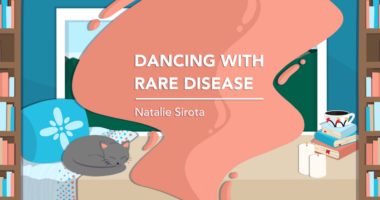
HAE and emotional well-being: Finding support and resilience
Last updated April 22, 2024, by Susie Strachan

Hereditary angioedema (HAE) can have a significant impact on your daily life and emotional well-being. The unpredictable nature of HAE attacks that cause sudden and noticeable swelling can lead to uncertainty and interfere with daily life.
By educating yourself about HAE, its triggers and treatment, adopting self-care practices, and seeking support from healthcare providers and peer groups, you can improve your emotional well-being and feel more in control of your condition.
The emotional impact of HAE
Daily life with angioedema can be stressful due to the uncertainty of when an attack might occur and how severe it will be for you or your child.
Visible swellings, particularly on the face or neck, may lead to feelings of embarrassment and self-consciousness, and can even lead to self-isolation.
Pain or discomfort from swelling attacks or other symptoms also can make it difficult to focus on your daily activities.
Over time, some people with HAE may be at risk of developing depression. The feelings of hopelessness can range from mild to severely affecting your life.
Experiencing these kinds of emotions are not uncommon as you learn to navigate HAE and its uncertainties. Know that you are not alone and that there are strategies to help you handle your anxiety.
After you receive a diagnosis of a chronic illness like HAE, it can be helpful to learn about what sets off attacks, what to avoid, and HAE symptom management.
Work with your healthcare team to develop an attack prevention and treatment plan, including having easy access to HAE medications.
Your healthcare provider also can discuss ways to improve your mental health and practice self-care as a person living with HAE or as a caregiver. They may also be able to share tips for connecting with family and friends and ways to find online and in-person HAE support groups.
Prioritizing self-care
Self-care starts by making changes to your lifestyle to nurture your physical and emotional well-being. The goal is to boost resilience and your quality of life.
It encompasses various aspects of well-being, including the physical, mental, and social aspects of your life.
Your physical health may benefit from self-care such as:
- getting enough sleep and resting when fatigued
- eating a healthy diet rich in fruits, vegetables, whole grains, lean proteins, and healthy fats, and avoiding any angioedema trigger foods
- participating in regular physical activity to promote cardiovascular health, strengthening muscles, improving flexibility, and boosting your mood.
Your mental and emotional well-being may improve with self-care techniques such as:
- developing strategies to manage stress and anxiety
- getting help from a mental health counselor or therapist
- staying informed about HAE treatments and research.
Daily coping strategies for anxiety and depression
Because HAE attacks cannot always be avoided, you may want to have coping strategies you can rely on to help you get through your day and for dealing with feelings of anxiety and depression.
Some coping strategies for day-to-day stress management include:
- identifying and reducing sources of stress that can trigger HAE symptoms
- setting realistic goals and breaking large tasks into manageable steps
- talking with family and friends about your emotions
- practicing mindfulness, such as meditation, self-reflection, or deep breathing
- pursuing a hobby and doing things you enjoy
- celebrating your successes, no matter how small.
If you’re struggling with anxiety or depression, don’t hesitate to seek help from a mental health professional. Therapy, medication, or other treatment options may be beneficial. Speak with your personal healthcare provider about a referral to a mental health counselor or therapist.
Building a support network
Building a support network starts by identifying people who are sympathetic and willing to offer support, such as your family, friends, other people living with HAE, and healthcare providers.
Consider looking into support groups and online communities for people living with HAE and their caregivers. Participating in events such as HAE conferences or webinars can help you network with other people and families dealing with HAE.
Some resources include:
Building a support network works both ways — when offering support to others, you also can strengthen your relationships and foster a sense of community.
Maintaining a positive attitude
While living with HAE may present challenges, it can be helpful to focus on aspects of your life that you can control, such as sticking to your treatment plans, following a healthy lifestyle, and practicing self-care strategies.
These can help you build a positive attitude, and go a long way toward maintaining and building your confidence.
Angioedema News is strictly a news and information website about the disease. It does not provide medical advice, diagnosis or treatment. This content is not intended to be a substitute for professional medical advice, diagnosis, or treatment. Always seek the advice of your physician or other qualified health provider with any questions you may have regarding a medical condition. Never disregard professional medical advice or delay in seeking it because of something you have read on this website.
Recent Posts
- Having HAE takes toll on life quality, regardless of race, ethnicity
- Biocryst to present new Orladeyo, navenibart data at AAAAI meeting
- Real world study in Canada shows Takhzyro cuts HAE attacks by 80%
- Guest Voice: Why misconceptions about HAE are harmful
- Living with chronic illness changed my programming




